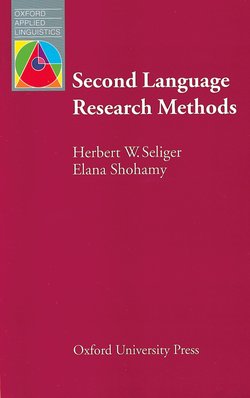Читать книгу Second Language Research Methods - Herbert W. Seliger - Страница 8
На сайте Литреса книга снята с продажи.
1 What is research?
Finding answers: How do we know something?
ОглавлениеAn important dilemma which research must deal with is how we know when we have found the answer to a question. As we shall see, there are different methods which research can use to answer the questions which it poses. How do we know when either we or another researcher have found an answer to a question posed about second language?
Research findings in second language studies and bilingualism may be categorized according to four types of knowledge which these findings represent. It is often a good idea for a reader of research to ask what kind of knowledge is represented by different claims made in a study. Not all conclusions are necessarily reached on the basis of the same kind of knowledge. Thus, the conclusions of a study might be based partially on belief (Type 1) and partially on a description of a language phenomenon or the results of an experiment (Type 3 or 4).
Four types of knowledge found in second language research
Type 1: Knowledge as belief
When we know something on the basis of belief, it may mean we want to believe something to be true but have never submitted it to an empirical test. Many of the conclusions reached through ‘common sense’ may be put into this category.
Weinreich (1953) presents these ‘scientific’ conclusions reached by researchers on bilingualism:
Reis (1910) writing about the trilingualism of those who live in Luxembourg stated, ‘The temperament of the Luxembourger is rather phlegmatic … We have none of the German sentimentalism or the French vivacity … Our bilingual electicism prevents us from consolidating our conception of the world and from becoming strong personalities.’
